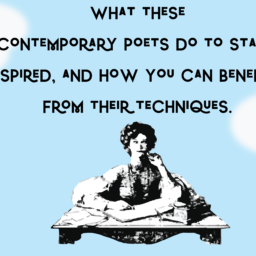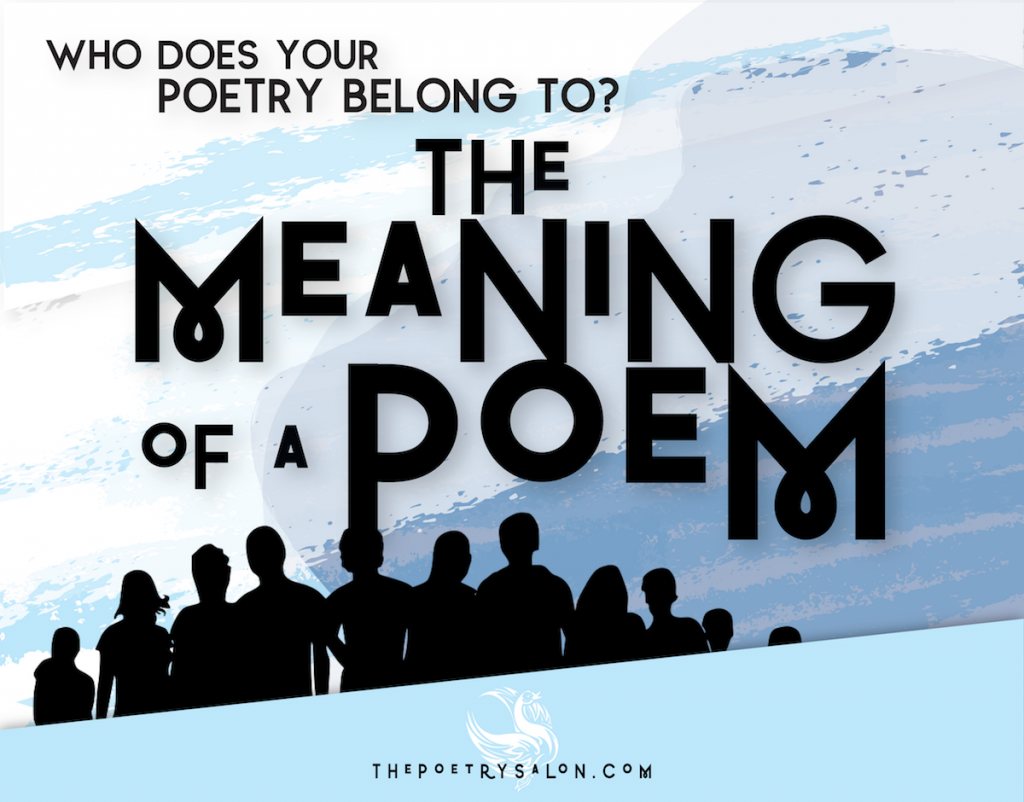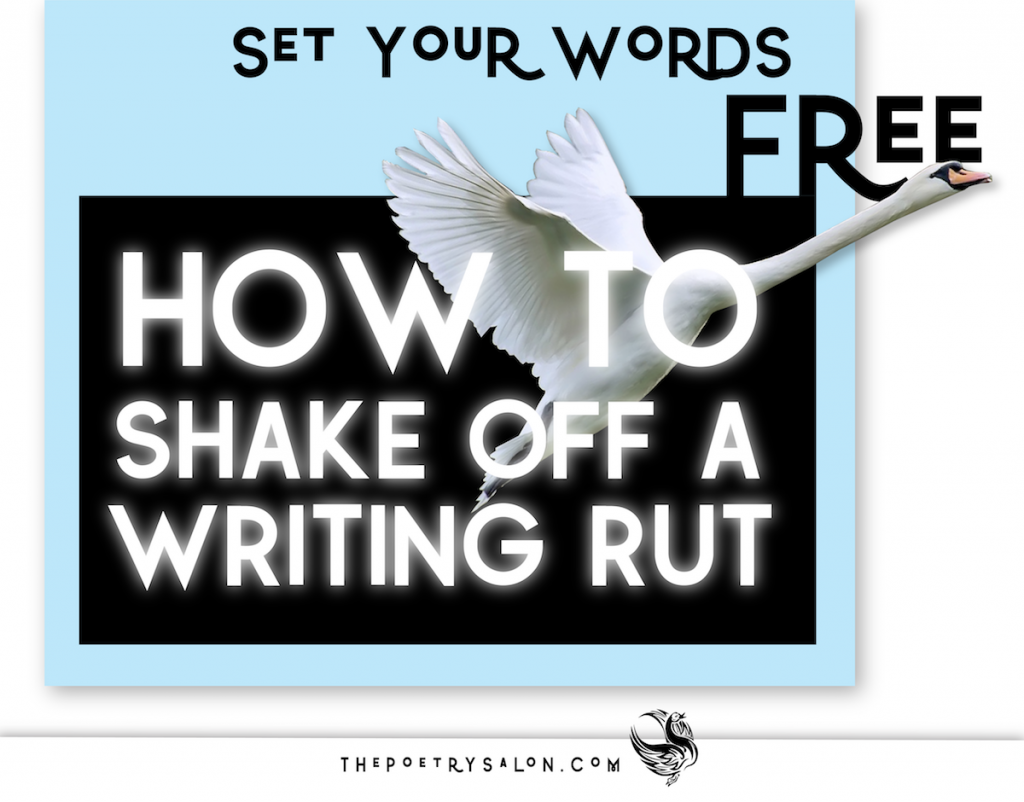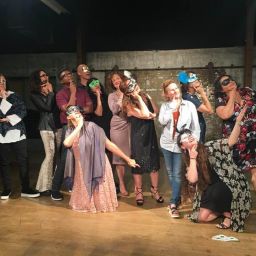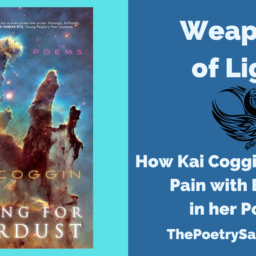Stop this day and night with me and you will know the secret to poetry
– Walt Whitman
In 2019, months before the Pandemic began, my husband and I moved to Costa Rica to take a little sabbatical. After almost three years here the sabbatical has taught me more than I ever thought I needed to know about the creative process and the kind of lifestyle that nurtures creativity. Even if you can’t manage to live in Costa Rica, here’s what you can learn from the pura vida lifestyle, and how you can use it to benefit your creativity too.
In my workshops at The Poetry Salon, I often tell participants that writing is easy. You just tell the truth. It’s all the stuff that gets in the way of that truth-telling that makes it hard. It’s the posturing, the posing. The desire to make yourself look good gets in the way. It’s why I wasn’t really able or even interested in writing poetry until I heard Brendan Constantine’s opening line to “Story” which goes, “Listen, I want to tell you something ordinary”, a line which he partly cribbed from Bridget Pageen Kelly’s opening to her poem, “Story” which also starts with the word “listen.”
In my writing I often use the word “listen”. I have three poems that start with “listen” online and a dozen more in my rough draft folder.
Sometimes it’s all we need as artists, I think. To listen and then to speak or write what we’ve heard. Poets are partly artists and partly channels for something else – something that comes through us, filtered through the prism of our perceptions. We turn sunlight into rainbows. We turn a bright day cool with our shades, or warm with rose-colored glasses. We become translucent as snow-globes, and we let things shine through clear, but magnified.
What does this have to do with Costa Rica?
It’s one thing to tell people to drop all of their pretenses and get past their ego when they are attending your Los Angeles workshop. Not to malign my one-time home, but it’s not a great place to look past your mirror reflection and get humble and unself-conscious. It’s a place where women put on fake eyelashes to go to the gym. A place my friend described as being full of “walking business cards.” I lived there for almost ten years after leaving the Bay Area, and eventually I too succumbed to the pressure to be “on” and “beautiful.”
In Santa Cruz where I went to school, I came to class in my bathrobe with no make-up. In L.A. I kept an emergency bag in my car so I could put on mascara and lip-gloss while stuck in traffic. Los Angeles shaped me in ways I wasn’t even aware of, so when I came to Costa Rica the difference in environment shed light on the ways I had been “faking it”.
In Costa Rica, for example, there are few billboards. One doesn’t spend the day watching giant signs insisting you look a certain way or buy their product for happiness. There are fewer cars, fewer symbols of status and prestige, and fewer people who are competing for your attention. Mainly what you have is … nature! Miles and miles of trees that don’t give a shit what you’re wearing or how you look. Just forest, animals, birds and fruit trees dropping their bounty for free. Bats sleeping on the underside of palm fronds, dart frogs hiding in shadows, and if you are patient the chance to see the elusive but evocative blue morpho butterfly. Costa Rica is a place that calls you to pay attention, to appreciate and be surprised, to forget yourself and get lost in the embrace of the mysterious and profound.
I won’t lie, like ripping off a band-aid it took me a while to adjust. Without all of the noise and excitement what was I to do with my time? My ambition? My over-excited brain? I hadn’t yet heard the term dopamine detox yet.
I listened. Things started to come to life in a new way. My mind shifted from the mirror to the window, as it were, from my own face to the face of nature, the face of the almighty in their many forms. Imagine waking to a day filled with an abundance of beauty. A day or even a week with nothing pressing. A place where nature says, “Come, see what I’ve made. Take your time; there’s nowhere you have to go and nothing in particular I want you to be. Just be. Just observe.”
I had experienced something like this in Hawaii, at a retreat hosted by the poet and teacher Kim Rosen, author of Saved by a Poem. But to linger in it day after day—to live in it—is different. You start to realize that the Earth is not a static thing. It has a voice, a presence. It tells you what it wants from you, which is nothing, and what it wants for you, which is everything.
Chang
*Experiences may vary. The Poetry Salon cannot be held responsible for what toucans or dart frogs say to you. All opinions expressed by blue morpho butterflies and passing sloths are their own and do not reflect the beliefs of The Poetry Salon or affiliate organizations. Please listen to the sounds of nature responsibly. And keep a journal by your side at all times.
Now the real question. Do you need to move to Costa Rica in order to become more creative?
It wouldn’t hurt, but if that is not an option for you, there are aspects of the Pura Vida Lifestyle you can incorporate into your life no matter where you live.
Here are some things anyone can put into practice:
- Schedule time to be bored. The book Bored and Brilliant: How Spacing Out Can Unlock your Most Productive Self by Manoush Zomorodi and Robert Louis Stevenson wrote about the value of boredom. When you’re “bored” you’re also undistracted. You can contemplate solutions to problems, or you can let your imagination dream up whatever it wants. Even before coming to Costa Rica, I engaged in a weekly day of boredom where I would turn off electronics and put away my journal so I would have no distractions. Then I’d take myself to breakfast, go out for coffee, or even spend all day soaking in a hot tub where I would be forced to hear the silence and watch the movie screen of my thoughts unfolding. Sometimes it was uncomfortable. Sometimes it was downright boring, but the next day I would be filled with energy and new ideas.
- Connect with nature in silence. In his book The Art of Description, Mark Doty notes that contemplating animals is a natural stimulant for poets. Animals don’t talk but they do allow us to personify them. “What are they thinking?” we wonder. I’d argue we can do the same with trees, flowers, insects – all of the natural phenomena. If you can, take your mandatory boredom in the park or someplace where nature can stimulate your imagination.
- Walk, bike and move as much as you can. Getting exercise off of the treadmill is a great way to discover the world close up. As much as possible get out of the car and walk or bike to wherever you’re going. This will help you see more, smell, touch and hear more. It will put your body in motion. Getting the blood pumping to the limbs also has a way of getting blood flowing to the brain, creating a generative rhythm in the body. In Michelle Bitting’s Poetry Saloncast interview, she calls this “preparing the body for poetry.”
- This last one is a little tricky, but – develop gratitude. This one was probably the hardest skill to develop, especially in Los Angeles. There’s a truism many therapists use: “Don’t compare your insides to someone else’s outsides.” Sometimes when I went on those little boredom jaunts to coffee shops, I would overhear people having loud conversations about the movie they were working on, an exciting new project, or their new “deal”, yet their tenor was strangely disaffected. In Costa Rica people want to spend time with family. They talk about their community, how clean the beach is, or where to go fishing next week. People – locals and foreigners alike, are here to appreciate what’s at hand. Sunlight, minnows in the surf, monkeys in the branches of a mango tree. When I go to my favorite coffee shop the proprietor is happy to tell me all about the native art on the walls, the kind of wood they use to carve their bowls and wooden spoons, and how they are reforesting the hills.
They aren’t asking what this Earth can do for them, they’re asking how they can take care of the animals and the oceans and rivers and streams. This is the essence of ecstasy, a word which means to lose yourself in something else – something external. Instead of asking “how do I compare” in Costa Rica people think, ‘We’re all in this together. Let’s protect one another.’
If you can, find a community of people who want to work together for the common good. That may be a great writing class, a church, a soup kitchen or a school. Find someplace where you can donate your talents to someone else.
It’s taken me years to get out of my old mentality of doing and comparing and distracting myself all the time. I can’t claim I’ve fully left it behind. It’s a practice, like everything else. There are days I watch too much of the news, wish I had what some of my friends at home have, and want to drown my mind in podcasts. But I will say when I look out the window and see a dove land in the Bismark Palm, when I know how to name the plants in the garden and the birds in the trees, and I know I have a little free time stretched before me in which I can create, it is easier to give thanks for what I have. It is easier to think, “I have the best of all possible worlds.”
So, Pura Vida to you, wherever you are.
Write on. Write on.


